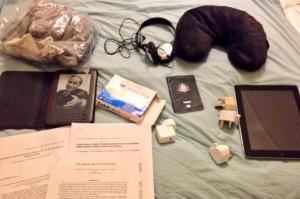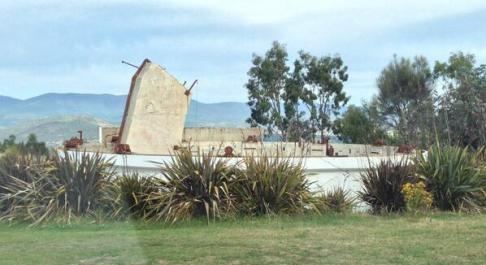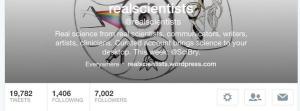Sturgeon’s Law (1958) states that 90% of everything is crap. This was first posited for bad science fiction, but is now thought to apply equally to everything in modern culture, apart from Nickelback albums, which are 100% crap; hewn with craftsman-like care from a single billet of purest weapons-grade crap. Worryingly, the Universe itself is more than 90% crap. Well, not so much crap, as stuff we know next to nowt about: dark matter, and dark energy. As Professor Bryan Gaensler of the University of Sydney said earlier this year in the Fairfax press, ’95 per cent of the universe is made of dark energy and dark matter, and we have no idea what they are.’ Professor Gaensler is an Australian Laureate Fellow at USyd, founding Director of the Australian Research Council’s Centre of Excellence for All-sky Astrophysics (CAASTRO), author of popular astronomy book Extreme Cosmos, former Young Australian Of The Year, connoisseur of science fiction (presumably including the 90% which is crap), Manly Sea Eagles NRL supporter (booooo!), and as of this week, curator of zero-percent-crap, all-killer-no-filler science rotation-curation account RealScientists. Huzzah!

Prof Gaensler is a Sydneysider by birth and upbringing, and a USyd graduate by training. Having previously held positions at MIT, the Smithsonian Institution and Harvard University, he returned to USyd in 2006 as a Federation Fellow, before being appointed the foundation Director of CAASTRO. His research focuses on the origin of magnetism in interstellar space, the demographics of neutron stars and black holes in our Milky Way, and the identification of transient sources of radio emission. His list of awards and accolades is as long as your arm, particularly if your name is Mr Tickle; aside from the above, he gave the 2001 Australia Day Address to the nation, was a 2005 Alfred P Sloan Research Fellow, is a winner of the Pierce Prize (2006) and the Pawsey Medal (2011), and in 2013 was elected as a Fellow of the Australian Academy of Science. He has authored over 240 scientific papers (including first author papers in both Nature and Science) with more than 10,000 citations and an H-index of 60. He is also a passionate communicator and educator, having published dozens of articles in newspapers and magazines of science and innovation, while Extreme Cosmos was published worldwide by Penguin in July 2012 and has subsequently been translated into Japanese, Polish, Italian and German. Check out his personal homepage on the USyd website, where he talks more about his research:
As Director of CAASTRO, I am working to establish Australia as the world-leader in wide-field radio and optical astronomy. The CAASTRO team aims to answer major unsolved problems in astronomy, to develop innovative ways of processing enormous data-sets, and to enable a diverse set of opportunities for students and early career researchers. By bringing Australia’s top astronomers together into a focused collaboration, CAASTRO aims to cement Australia’s reputation as an international leader in astrophysical research, and to build unique expertise in wide-field radio and optical astronomy. CAASTRO also aims to position Australia to lead the science programmes planned for the Square Kilometre Array (SKA), a radio telescope for the 21st century that will answer fundamental questions about the origin and evolution of the Universe.
As a Laureate Fellow, I aim to use the unique capabilities of the Australian Square Kilometre Array Pathfinder (ASKAP) to conduct the Polarisation Sky Survey of the Universe’s Magnetism (POSSUM). POSSUM is based around an effect called “Faraday rotation”, in which light from a background object is subtly changed when it passes through a cloud of magnetised gas. By measuring the Faraday rotation in the emission from millions of distant galaxies over 70% of the sky, POSSUM aims to transform our understanding of magnetic fields in galaxies, clusters and in diffuse intergalactic gas, and to thus address key unanswered questions on Milky Way ecology, galaxy evolution and cosmology. The data from POSSUM will provide a substantial legacy to the astronomical community, while the new instrumentation required for this project will test the technology needed for the SKA.
He also gets interviewed a lot, so if you’d like to learn more about him, take your pick from the below….
…Or just stay tuned to the RealScientists Twitter feed this week and let Bryan tell you himself!



